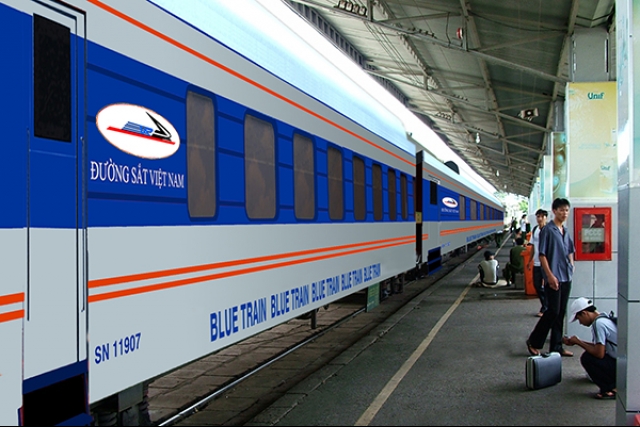HCM City promotes railway tourism over national holiday
 |
About 30 tourism companies will cooperate with the railway sector to create more tourism products. After aviation, the city’s tourism sector views railways as part of its strategy to stimulate domestic tourism demand. The railway tours will run from the city to tourism destinations in south-central and central Vietnam, such as Phu Yen province, Khanh Hoa province, Phan Thiet city, and Quang Ngai province.
Tickets for these tours will be discounted by at least 25 per cent. Ms. Tran Thi Viet Huong, Marketing Director at Vietravel, said that from August 15 the price of tourism services has fallen at it marked the end of the peak travel season. This is therefore a good time for travel agencies to work with tourism companies to introduce appealing tourism products at a good price. Her company is now offering 6,000 promotional products and she expects they will increase traveler numbers by about 20 per cent.
Mr. Le Quoc Trung, Deputy Director of Saigon Railways, said the company is cooperating with tourism agencies to train staff to adapt to new tourism services. One hundred and thirty cabins of the company’s train have been updated.
To diversify the city’s tourism products, Ms. Nguyen Thi Khanh, Deputy Chairwoman of the HCMC Tourism Association, suggested that travel agencies combine airline and railway transport in tours. For example, tourists can travel by train to a particular destination and then return by air.
Meanwhile, the Hanoi Department of Tourism and the Hanoi Railway Transport Joint Stock Company (Haraco) have been planning to organize professional tourism trains around the city and to nearby tourism destinations and will build the necessary lines.
They will also research the building of more railway lines to new tourism destinations and introduce packages that include travel and accommodation.
This is part of efforts by the railway sector to cope with falling revenue. In the first half of this year Vietnam Railways’ revenue fell short of targets, with revenue of the parent company equal to 79.2 per cent of the figure in the same period last year and the revenue of its subsidiaries equal to 76.8 per cent.
There are more than 3,000 km of railway lines in Vietnam with 287 stations. Efficiency in the railway sector, however, is considered to be at a low level. Annual revenue is about VND350 billion ($15.6 million) and the State budget provides about VND1.2 trillion ($53.8 million) annually for maintenance, according to the Ministry of Finance.
The Railway Development Strategy to 2020 and Vision to 2050 states that the sector will focus on upgrading existing railway lines and modernizing the North-South line to raise speeds to 80-90 km/h for passenger trains and 50-60 km/h for freight trains.
In the 2020-2030 period the sector is to effectively exploit existing railway lines and eliminate level crossings. It will also focus on building new high-speed railway lines, with speeds of 160 km/h to 200 km/h, and double the gauge to 1.435 mm. Electrification and infrastructure will also be developed, so that high-speed trains of 350 km/h can be put into use in the future.
What the stars mean:
★ Poor ★ ★ Promising ★★★ Good ★★★★ Very good ★★★★★ Exceptional
Latest News
More News
- Manila becomes a new check-in destination for Vietnamese youth (December 11, 2025 | 18:07)
- Vietjet launches mega year-end ticket promotion (December 10, 2025 | 11:33)
- Dalat leads Vietnam’s 2025 search trends (December 09, 2025 | 13:44)
- Vietnam welcomes record wave of international visitors (December 09, 2025 | 13:43)
- Vietjet launches daily Manila flights to celebrate year-end festive peak season (December 05, 2025 | 13:47)
- The destinations powering Vietnam’s festive season travel demand (December 04, 2025 | 18:33)
- Vietnam named among the world’s most exciting winter destinations (December 04, 2025 | 15:10)
- Phu Tho emerges as northern Vietnam’s new tourism hub (December 01, 2025 | 17:00)
- Vietjet completes Airbus A320/A321 updates ahead of deadline (December 01, 2025 | 09:49)
- Vietjet resumes Con Dao flights from early December (November 28, 2025 | 15:24)
















 Mobile Version
Mobile Version